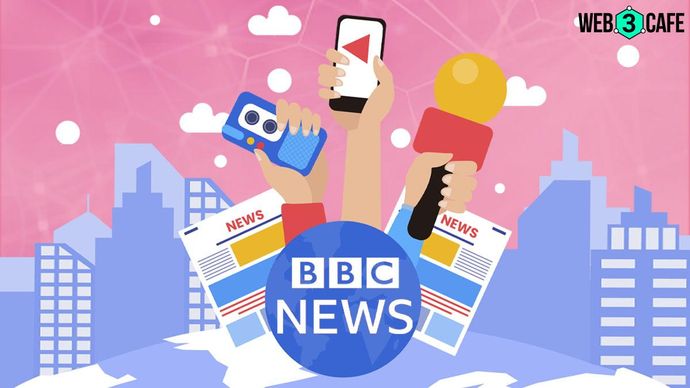BBC embraces generative AI with transparency & collaboration
The UK news organisation intends to collaborate with companies to determine the most effective applications of generative AI.

Highlights
- The BBC is venturing into generative AI to improve journalism and content, with a focus on public interest
- The BBC is safeguarding its content while exploring AI, ensuring responsible use and audience protection
The BBC, the UK's largest news organisation, has outlined its approach to using generative AI in a recent blog post. In this digital age, the BBC aims to harness the power of AI to enhance its journalism, and archival processes, and offer personalised experiences to its audience.
BBC's guiding principles for AI adoption
The broadcaster has established three key principles to guide its use of generative AI:
1. Serving the public's interest: The BBC commits to always acting in the public's best interests. This means that any AI applications will be geared towards delivering more value to their audience and society.
2. Respecting creativity and rights: The BBC emphasises the importance of respecting the rights of artists and creators in its AI endeavours. Prioritising talent and creativity ensures that artists' works are acknowledged and protected.
3. Transparency and accountability: Transparency is fundamental to the BBC's AI approach. The organisation pledges to be open and transparent about AI-generated content, ensuring that audiences are aware of the technology's involvement.
Collaboration and trust-building
To safely explore the potential of generative AI, the BBC plans to collaborate with tech companies, fellow media organisations, and regulators. They aim to develop AI technologies that can be trusted in the news industry by working together.
Rhodri Talfan Davies, the BBC's Director of Nations, explained,
"In the next few months, we will start a number of projects that explore the use of Gen AI in both what we make and how we work."
These projects will explore various areas, including journalism research and production, content discovery and archives, and personalised experiences. While the BBC is eager to embrace generative AI to improve journalism and content delivery, it has taken measures to protect its intellectual property.
The organisation, like CNN, The New York Times, Reuters, and others, has blocked web crawlers from accessing its websites. Interestingly, organisations like The Associated Press released their own guidelines earlier this year, in August.
Furthermore, The Associated Press partnered with OpenAI to share its stories for the purpose of training GPT models. The BBC’s move aims to safeguard the interests of those who pay for their services, as unauthorised training of AI models with BBC data is deemed against the public interest.
In short, the BBC's adoption of generative AI comes with a determined commitment to serve the public, respect creativity, and maintain transparency. Collaborating with industry partners and regulators, the BBC aims to harness the potential of AI while safeguarding its content.
This marks a significant step in the evolving landscape of news and media in the digital age.
